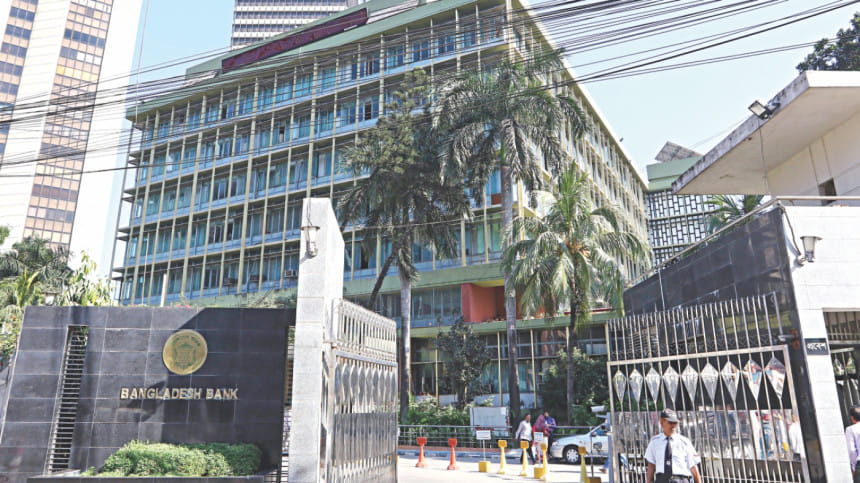Floating taka a bold move with high stakes

Bangladesh has taken a long-awaited and consequential step by officially floating the taka. This marks the end of a tightly managed exchange rate regime that, for years, concealed deeper imbalances in the economy. While partly driven by necessity, dwindling foreign reserves and IMF-mandated reforms, it also presents a rare opportunity to reset the country's macroeconomic fundamentals.
The immediate backdrop includes persistently high inflation and weakening domestic demand. These pressures have dampened imports, offering temporary relief to the foreign exchange market. Simultaneously, high interest rates have curbed borrowing and discouraged capital flight, creating a relatively stable moment for the Bangladesh Bank to act.
To avoid excessive volatility, the central bank has not left the market entirely to its own devices. It has introduced a stabilisation fund to manage sharp fluctuations and is closely monitoring interbank trading. These measures are intended to anchor expectations and prevent speculative pressure during the transition.
There is reason for cautious optimism. A weaker taka could improve the competitiveness of Bangladeshi exports, particularly in the RMG sector, which accounts for over 80 percent of export earnings. Provided input costs remain stable, exporters could regain lost market share.
Remittance flows may also benefit. With the exchange rate now more aligned with market realities, overseas workers might favour formal banking channels over the informal hundi system. Over time, this could strengthen foreign currency reserves and improve liquidity in the banking sector.
The external environment also offers some respite. Global prices for key imports such as oil, LNG, wheat, corn, and scrap metal remain relatively low, helping to contain import bills. Domestically, subdued consumer demand continues to reduce pressure on forex reserves.
Interestingly, the current stagnation in private sector investment has temporarily eased the forex strain. With many businesses holding off on capital expenditure due to macroeconomic uncertainty, demand for foreign currency has dropped.
Moreover, aligning with IMF recommendations signals a willingness to pursue difficult but necessary reforms. This may enhance Bangladesh's credibility with other development partners and international investors.
However, the path ahead is fraught with challenges. Trade tensions with the United States, especially over labour rights and governance, could impact access to key export markets. At the same time, Bangladesh's growing tilt towards the West may strain relations with China.
Deeper structural issues remain unresolved. Foreign direct investment continues to lag, hindered by regulatory unpredictability, bureaucratic delays, and governance concerns. Without meaningful reforms, a floating exchange rate alone will not attract sustained investment.
External threats are also emerging. In the US, President Donald Trump has proposed a 5 percent tax on outward remittances. If enacted, this could deter formal money transfers and push more remitters towards informal channels. The upcoming graduation from LDC status in 2026 adds further complexity. As preferential trade access is phased out, export diversification will become more urgent.
Meanwhile, a rebound in global demand could drive up prices for oil, gas, and industrial metals, increasing import costs and pressuring the balance of payments. Simultaneously, remittance inflows could soften if host economies contract or tighten their labour markets.
To ensure a smooth transition and long-term resilience, Bangladesh must anchor inflation expectations through a credible and transparent monetary policy. Besides, we need to improve the investment climate.
We should also modernise trade policy to support export diversification and strengthen financial governance.
Floating the taka is not a silver bullet, but it is a step in the right direction. It signals a maturing economy prepared to face global realities. The challenge now is maintaining consistent reforms, credible policies, and transparent governance. Managed wisely, this could mark the beginning of a more resilient, competitive, and globally integrated Bangladeshi economy.
The writer is the chairman of Unilever Consumer Care Limited.

 For all latest news, follow The Daily Star's Google News channel.
For all latest news, follow The Daily Star's Google News channel. 



Comments